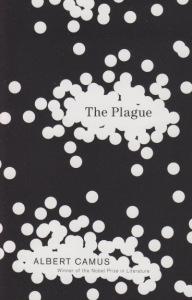 Some events transform a society.While we keep waiting for things “to get back to normal,” many of us have already come to realize that there is no normal to which we can get back.That’s my main impression after reading Albert Camus’ The Plague.The story is set in 1940s Algeria where the Bubonic Plague breaks out in a single town that has to isolate itself from the rest of the world.As the months and realizations of long duration develop, the emotions the characters go through are very much in line with what seems to be happening with Covid-19.Indeed, that’s why the novel seems to be going through a surge of popularity right now.I’ve always associated Camus with the great existentialist writers, but that slipped to the back of my mind while reading this poignant story.
Some events transform a society.While we keep waiting for things “to get back to normal,” many of us have already come to realize that there is no normal to which we can get back.That’s my main impression after reading Albert Camus’ The Plague.The story is set in 1940s Algeria where the Bubonic Plague breaks out in a single town that has to isolate itself from the rest of the world.As the months and realizations of long duration develop, the emotions the characters go through are very much in line with what seems to be happening with Covid-19.Indeed, that’s why the novel seems to be going through a surge of popularity right now.I’ve always associated Camus with the great existentialist writers, but that slipped to the back of my mind while reading this poignant story.
Existentialism is all about making one’s own meaning in a meaningless universe.This is precisely what Dr. Rieux does in Oran as his former life becomes one long ward call of service to the town.He befriends characters who represent the best and the worst of human nature as they respond to the pressures of isolation and boredom.Camus pointedly notes that despite the equalizing forces of death and hardship, the rich manage to make sure they have it better than the poor although they all end up in the same common grave.There are morals to this story, and it’s clear that “leaders” in Washington have never read it.Literature quite often teaches important lessons, but to get at them you have to read.
Rieux befriends Tarrou and it seems to me that Tarrou’s lengthy monolog on why he has volunteered to stay in Oran and help those who are suffering is the main message of the book.Tarrou understands the lessening of suffering, the attempt to bring peace, as the main purpose of human beings.He says at one point that it’s like becoming a saint.Despite the ways saints are often worshipped these days, that is at the heart of their canonization.Care for others.Rieux points out that Tarrou doesn’t believe in God, and yet, as the story winds down it is clear that he has become a kind of savior figure.The novel is disturbing in its simplicity and in its timeliness.It would seem that if we’re to get anything at all out of being under the cloud of a modern plague that we need to take the view that others matter, despite what Washington says, perhaps even more than ourselves.
